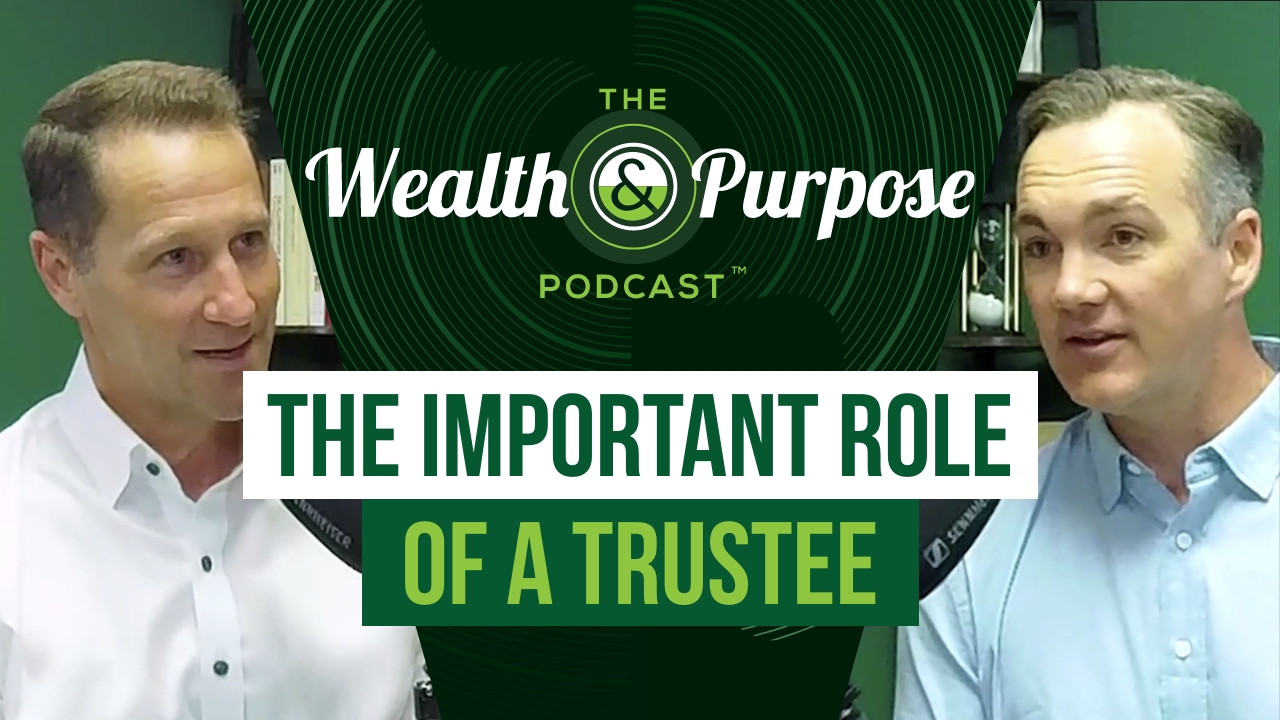Introduction
Few roles in wealth management are as misunderstood, or as consequential, as that of a trustee. It’s easy to assume it’s simply a legal formality or an administrative title. But as Brady Fineske, CFP®, explores in his latest episode of The Wealth and Purpose Podcast with guest Donald Scott, Director of TFO Trust Company, the truth is far deeper and more personal.
Wearing Three Hats
Donald paints a vivid picture of trusteeship as wearing three distinct hats: administrator, investor, and wise steward.
“The first hat is administrative,” he explains. “It’s about keeping the trains running on time: filing tax returns, preparing reports, making sure beneficiaries are informed.”
The second hat involves investment decisions: determining whether a trust should hold stocks, cash, real estate, or private equity, and adjusting those decisions as family needs evolve.
But perhaps the most vital hat is wisdom, understanding the purpose behind the trust and staying true to the intentions of the person who created it.
The Perils of Family Dynamics
Many families instinctively appoint a relative as trustee, thinking, “Who better than someone who knows us?” Yet Donald cautions that combining family dynamics with financial decisions can quickly erode relationships. Even the most trusted relative might not realize the technical and legal responsibilities involved, leading to mistakes, liabilities, or conflicts that splinter families.
Brady summarizes it perfectly: “We ought to do everything for our clients to make sure Thanksgiving stays about Thanksgiving.”
Corporate Trustees: An Unbiased Partner
While individual trustees can be effective, Donald advocates for considering professional trust companies, especially for long-term generational plans. Unlike individuals, corporate fiduciaries don’t retire, slow down, or become entangled in family politics. They build relationships over time, gaining deep knowledge of a family’s values and goals.
TFO Trust Company, chartered in South Dakota, leverages the state’s favorable laws to offer privacy, flexibility, and the ability for trusts to endure across generations, a significant advantage for families seeking to protect wealth and purpose.<
Don’t Leave It to Chance
Perhaps the most powerful takeaway is the importance of planning. Donald emphasizes that even if you think, “I won’t be around,” the decisions made today determine whether your legacy flourishes or falls apart in future generations.
Being a trustee isn’t about checking boxes. It’s about preserving harmony, fulfilling a vision, and ensuring wealth truly serves a purpose.



